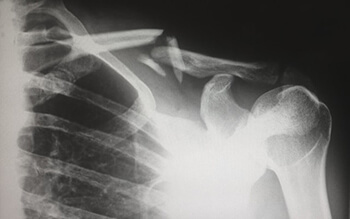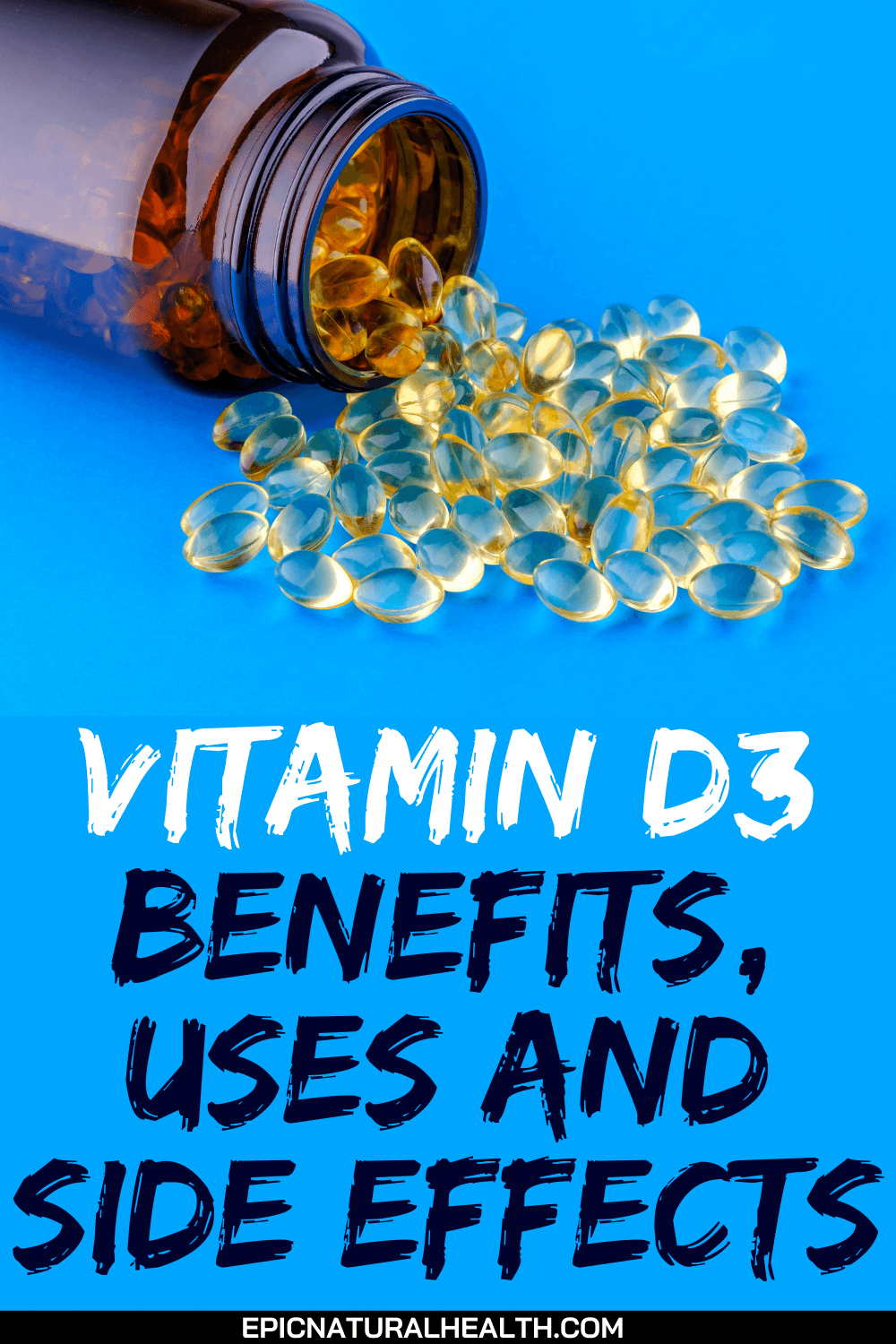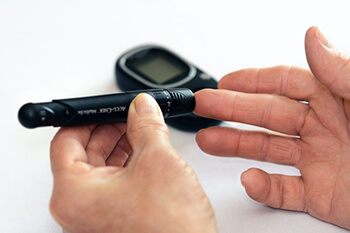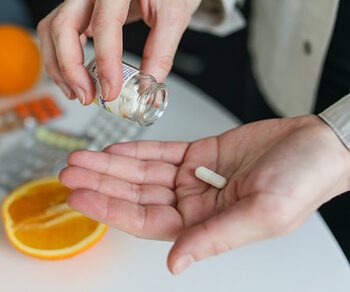How many of your daily nutrients do you really think you get? The problem with the standard American diet is that the foods we consume simply don’t contain the right ingredients to provide us with the fuel we need to thrive.
One nutrient that we so commonly fall short of in our daily diets is vitamin D3. We all know that sunlight is another source of vitamin D3 – but what happens when we don’t get enough of that either?
What is vitamin D3?
Vitamin D3 is a fat-soluble vitamin that helps your body to effectively absorb calcium and phosphorus. Technically, Vitamin D isn’t actually a vitamin. It’s a steroid hormone, which our bodies can make themselves, providing they can create the right conditions to do so.

However, if we don’t manage to make enough vitamin D3, we can also acquire it from food sources. Having the right amount of vitamin D in our bodies is vital for building and maintaining strong, healthy bones.
You may find that you’re not getting enough vitamin D3 if you suffer from digestive issues such as celiac disease, liver problems, or Crohn's disease. As the sun is also a source of vitamin D3, you’re generally more likely to be vitamin D3 deficient if you don’t go outside or cover up from the sun when you do.What happens if you’re vitamin D3 deficient?
If you have a deficiency in vitamin D3, you’re at risk of developing something called rickets. This is a disease caused by low levels of vitamin D3 that can cause bone distortion, most commonly characterised by bow-shaped legs. Children who don’t take enough vitamin D3 are at a higher risk of developing rickets.

If you’re an adult, being deficient in vitamin D3 might not lead to the development of rickets disease, but your bones may still start to become softer, which is known as osteomalacia. Osteomalacia can make your bones more susceptible to fractures, as they lose some of their strength and rigidity.
Luckily, you don’t have to live with the effects of a vitamin D deficiency for the rest of your life, or even experience them at all. You can easily increase your intake of vitamin D3 to help improve and maintain your bone health, as well as promoting a number of different benefits that we’ll cover in this video.Benefits of vitamin D3
1. For immune function
Vitamin D3 has the power to regulate the body’s immune responses. It’s incredibly important that our immune system works well, as we need it to defend the body from foreign organisms, preventing us from falling ill and helping us to maintain good health.
A number of studies have found that a deficiency in vitamin D is associated with increased autoimmune disorders, as well as increased susceptibility to infection.
2. For maintaining calcium and phosphorus levels

One of vitamin D3’s most important roles is to help the body produce and maintain sufficient levels of calcium and phosphorus. Both of these minerals are vital for retaining bone strength, which is why you will have heard that getting enough vitamin D3 is essential for warding off conditions like rickets, osteomalacia, and osteoporosis. It’s not actually the vitamin D3 itself that affects bone strength, but the calcium and phosphorus produced by the vitamin D3.
3. For reversing heart damage
A recent study found that maintaining sufficient levels of vitamin D3 has the potential to reverse the damage of high blood pressure, diabetes, and other diseases that affect the cardiovascular system. Not only that, but doctors have recently begun to notice that many patients who’ve experienced a heart attack or heart attack symptoms also have a deficiency of vitamin D3.
This isn’t to say that a D3 deficiency necessarily causes a heart attack, but there’s evidence to suggest it’s linked to an increased heart attack risk.

4. For regulating blood sugar levels
There’s not so much research on this yet, but it’s thought that vitamin D3 may be able to help improve the body's sensitivity to insulin – the hormone that we need to regulate blood sugar levels – and therefore reduce the potential for insulin resistance. This may mean that higher levels of vitamin D3 can lessen the risk of developing type 2 diabetes.

5. For improved neurogenerative function
Interestingly, good levels of vitamin D3 goes beyond the physical and may also be able to help us mentally. It’s been found that vitamin D3 can support brain function and protect against the loss of neuron structure and functioning.
Various cognitive impairments, especially dementia, have been associated with lower levels of vitamin D3. Another study found that vitamin D deficiency can lead to the development of brain damage and poor cognitive ability.
6. For lower risk of mental illness

Newer studies are looking at vitamin D3 and how this may be linked to mental health. One study found a connection between a vitamin D3 deficiency and a higher risk of schizophrenia, while another found that people with symptoms of anxiety or depression had lower levels of calcidiol, a by-product of vitamin D breakdown, in their bodies.
7. For improved sleep
Research has found that vitamin D3 levels can significantly affect sleep quality. A number of studies uncovered evidence that reduced levels of vitamin D3 in the blood can result in a higher number of sleep disturbances, as well as poorer sleep quality and a shorter time spent in a deep sleep state. Because sufficient vitamin D can help reduce pain and control inflammation, upping your intake may also help you to sleep more comfortably.

8. For reduced risk of pregnancy complications
There’s a reason why you’re encouraged to increase your vitamin D consumption when you’re pregnant – it’s thought that vitamin D3 in particular can prevent a number of complications that may affect mother and baby during pregnancy. These include high or low blood pressure, uneven blood sugar balance, and low birth weight.
9. For improved respiration

You would never think to associate vitamin D with your breathing, but it’s thought that vitamin D3 may be effective in diminishing the symptoms of acute and chronic respiratory complications. Research has found that if you obtain a sufficient amount of vitamin D3 throughout your childhood and adulthood, you have a lower risk of developing symptoms of common chronic respiratory issues.
- Immune, muscle, teeth and bone health support supplement: contains one 300 count bottle of Nature Made Vitamin D3 1000 IU (25 mcg) Softgels for a 300-day supply
- Nature Made Vitamin D 1000 IU softgels support bone health, teeth health, muscle health, and provide immune support
- These Vitamin D 1000IU softgels help improve calcium absorption and contain 25mcg of Vitamin D 3, the body’s preferred form of Vitamin D
- Adults, take one Vitamin D3 softgel daily with water and a meal
- A VITAL NUTRIENT: Vitamin D supports healthy bones, teeth, muscle function, and a strong immune system. Many people may be deficient in this nutrient, making it even more important for overall health.*
- SUNSHINE IN A BOTTLE: The Vitamin D Council recommends daily vitamin D supplementation for most adults to achieve and maintain optimal levels, regardless of weather or season.* NatureWise Vitamin D3 is all natural, non-GMO, and gluten free with no artificial additives, fillers or binders.
- PURE & NATURAL: These Vitamin D3 immune support and bone health supplements are gluten-free and non-GMO. Third party tested for purity and potency. Packaging may vary due to high demand, same great product and ingredients.
- UNCOMPROMISING QUALITY: All NatureWise supplements are Manufactured in USA-based facilities that comply to the strictest cGMP standards and undergo rigorous testing by third party labs to ensure the highest quality and purity.
- IMMUNE SUPPORT (1): Vitamin D3 is an essential nutrient for immune support. (1) Each serving contains 2000 IU of Vitamin D for immune benefits and may assist the immune system by helping to regulate T and B-lymphocytes (1)
- SUPPORTS STRONG BONES (1): In addition to immune support, getting a sufficient amount of Vitamin D is critical to building and maintaining strong bones in adults. (1) It is essential for calcium absorption to help support healthy bones (1)
- YEAR-ROUND SUPPORT: Vitamin D3 supplements contain the same form of Vitamin D that is naturally formed in the body through exposure to sunshine. Nature’s Bounty Vitamin D3 helps support the production of Vitamin D all year long (1)
- NON-GMO FORMULA: Nature’s Bounty Vitamin D3 Softgels are non-GMO, gluten- and sugar-free, and contain no artificial colors or sweeteners
- Vitamin D3: Supports healthy teeth, bones, and muscles, as well as cardiovascular health and immune function*
- Optimal Absorption: Vitamin D3 is more potent and better absorbed than vitamin D2*
- NSF Certified: Supports high-performance nutrition programs and is NSF Certified for Sport
- Free From: Doesn't contain gluten, eggs, tree nuts, peanuts, dairy, soy, fish, or shellfish
10. For a healthy metabolism
Vitamin D3 plays a key role in various metabolic processes throughout the body, and it’s thought that the nutrient can help to balance blood sugar levels and reduce the risk of and metabolic complications. Some studies have even linked vitamin D to weight loss, with evidence suggesting that vitamin D3 may be able to reduce the formation of new fat cells in the body, as well as boost the metabolism, causing the body to burn more calories after eating.
Uses of vitamin D3
Geographical location, time of year, and even time of day
The amount of sunlight you’re exposed to widely depends on the angle that the sun hits the earth, which varies depending on where you live in the world, as well as the time of year and the time of day.
Skin pigmentation

We all have melanin in our skin, hair, and eyes. It goes some way to work as a natural sunscreen by absorbing UVB radiation from the sun, but in darker skin, where more melanin is produced, this may actually prevent vitamin D3 from being absorbed by the body.
Aging

As we get older, our ability to produce vitamin D3 gradually diminishes. We need a compound called 7-dehydrocholesterol in the body so that we can produce vitamin D3 from the sunlight that we’re exposed to. The older we get, the lesser amounts of this compound are produced.
Sunscreen

As with melanin in darker skin, the purpose of sunscreen is to prevent the skin from being able to absorb UVB radiation. This means that when we apply sunscreen regularly, it can reduce how much vitamin D is produced by the skin.
Diabetic patients in particular should be careful when using biotin as a treatment for their illness.
So, how much vitamin D3 do we actually need?
The Reference Daily Intake is 600 IU of vitamin D per day from foods alone. Natural food sources of vitamin D3 include fatty fish like salmon, herring, and sardines, as well as egg yolks, mushrooms, and cod liver oils. Some foods are also fortified with vitamin D3, including cow’s milk and soymilk, cereals, orange juice, and oatmeal.
Because many people don’t get enough vitamin D through sun exposure and diet, it may also be necessary to supplement. Strong evidence indicates that vitamin D3 is more effective at sustaining vitamin D blood levels over time than vitamin D alternatives, so always go for D3 when you can.Side effects of vitamin D3
Research suggests that the risk of taking too much vitamin D3 is extremely rare. Most of us actually need to increase our daily vitamin D intake – so there’s little need to worry about obtaining too much of the vitamin! However, on some rare occasions, vitamin D can cause a number of side effects that are worth looking out for.
Vitamin D sometimes causes allergic skin reactions, so if you’re planning to take the supplement, it’s worth talking to your doctor first. D3 may also affect your blood sugar levels, so if you have diabetes, again, speak to your doctor before taking the vitamin.
It’s very uncommon, but excessive amounts of vitamin D3 in the body can lead to toxicity. You’re only at risk if you take 40,000 international units (IU) or more of vitamin D per day for several months or longer, or if you take a large, one-time dose. Vitamin D toxicity can result in hypercalcemia, or high levels of calcium in the blood, which can lead to serious problems like kidney failure, and abnormal heartbeat.
There’s little reason for this to worry you – you're unlikely to develop vitamin D toxicity just from sunlight exposure or from obtaining vitamin D3 from foods.

Conclusion
Ultimately, without vitamin D3, we would be at risk of suffering from a wide range of health problems. We rely on vitamin D3 for the healthy functioning of so many aspects of the body, and it’s incredibly important that we produce a sufficient supply of the nutrient.
If you think you’re not getting enough vitamin D3, the best thing to do is assess your situation and see how you can improve your current intake. Perhaps you can increase your consumption of vitamin D3 foods, or foods fortified with vitamin D3. Another alternative would be to take a vitamin D3 supplement every morning.
It’s best to visit your doctor if you’re showing any signs of a vitamin D3 deficiency. They will be able to treat your problem and may offer more tips on how you can personally up your vitamin D3 intake for a healthier future.





